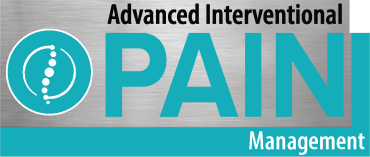By: Ryan Stuckey, MD
Understanding Spinal Cord Stimulation:
I want you to think back to the last time you walked through the house and stumped your toe on a piece of furniture or stepped on your dog’s chew toy. What was your immediate reaction? You likely reached down to grab your foot to rub the painful area. This action does not take away the pain entirely, but it does seem to provide some form of relief.
The body contains various nerve fibers that transmit different information to and from the brain. The sensation of touch and the sensation of pain, for example, are carried by two separate types of nerves. When stimulated simultaneously, the nerve impulses carrying the sensation of touch overwhelm the pain signals traveling to the brain, which results in the brain receiving less pain signals.
A spinal cord stimulator takes advantage of this physiologic interaction by activating the nerve fibers that transmit the sensation of touch and thereby decrease the sensation of pain that you may be experiencing in the low back or legs.
Conditions treated with Spinal Cord Stimulation:
- Post-Laminectomy syndrome
- Complex Regional Pain Syndrome
- Diabetic Peripheral Neuropathy
Patients with post-laminectomy syndrome are those who have undergone back surgery but continue to have pain in the legs or back.
Spinal Cord Stimulator Trial:
Much like when receiving an epidural steroid injection, the epidural space is accessed with a needle. Instead of injecting medication into this space, a small, flexible electrode lead is inserted and the needle is removed. One end of the lead remains in the epidural space, while the opposite end is connected to a battery, which is secured to your back. This system is worn from Monday to Friday, at which point the leads are removed painlessly at your follow up visit. If you report significant pain relief, we can then refer you to a neurosurgeon for implantation, which is completed as an outpatient procedure.
Call 501-624-PAIN (7246) for an appointment to see if you are an appropriate candidate for spinal cord stimulation.
For more information:
- https://www.pain.com/en/chronic-pain-solutions/spinal-cord-stimulation.html
- https://www.hfxforpdn.com/why-hfx/overview/
- https://www.medtronic.com/us-en/patients/treatments-therapies/spinal-cord-stimulation-chronic-pain.html
- https://www.neuromodulation.abbott/us/en/chronic-pain/living-chronic-pain/treatments/ht-tab/burstdr%E2%84%A2-stimulation.html
At Advanced Interventional Pain Management — with offices in Texarkana, Hot Springs, Little Rock, El Dorado, Arkadelphia, and Mena, Arkansas — you can contact our pain management specialists, Dr. Jacob Abraham , and Dr. Ryan Stuckey at 501-624-PAIN (7246) for an appointment to see if you’re an appropriate candidate for spinal cord stimulation.

